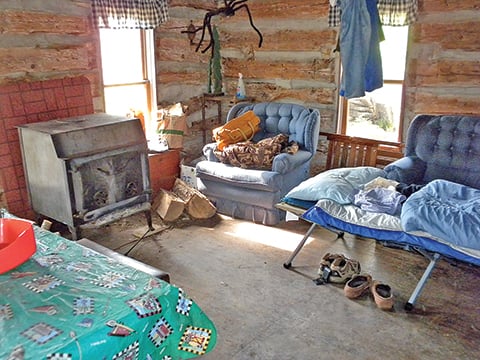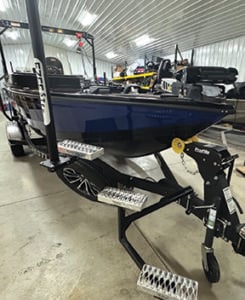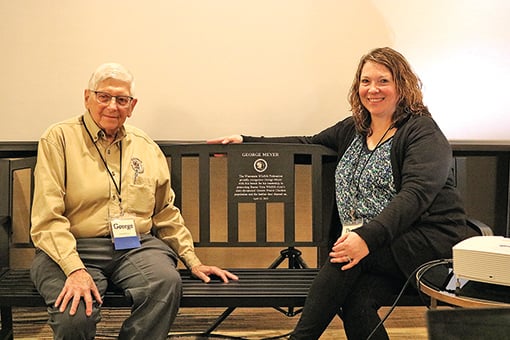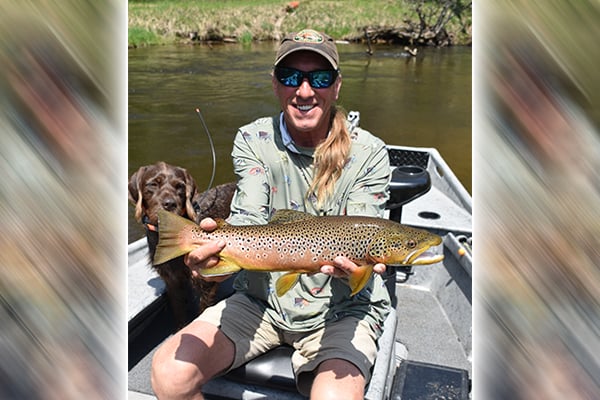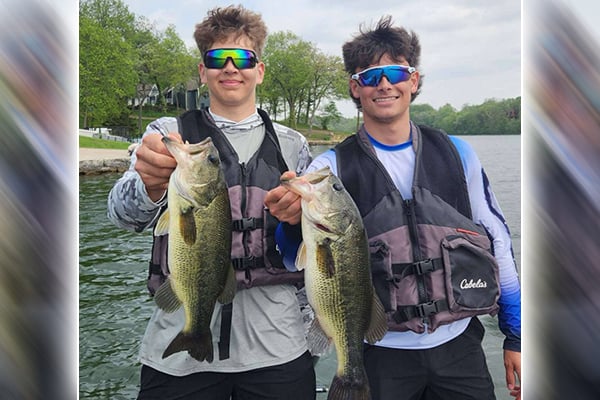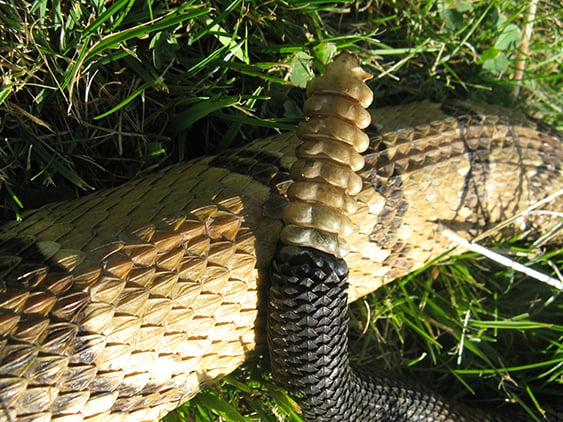Patrick Durkin: Wisconsin’s Conservation Congress struggles, but no worse than state legislature – Outdoor News
A good friend gets a little testy whenever he starts talking about Wisconsin’s annual spring conservation hearings. Once he gets rolling, he starts blowing snot bubbles.
By then he’s zeroing in on the bull’s-eye of his annoyance: the Conservation Congress. The CC is the citizens group that jointly sponsors April’s fish and game rules hearings with the DNR.
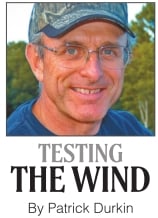 The congress has 360 elected delegates; five unpaid volunteers each of our 72 counties. Our legislature formally recognized the CC in 1971 as the citizen advisory body to the Natural Resources Board, the seven-citizen group that sets DNR policy.
The congress has 360 elected delegates; five unpaid volunteers each of our 72 counties. Our legislature formally recognized the CC in 1971 as the citizen advisory body to the Natural Resources Board, the seven-citizen group that sets DNR policy.
My buddy thinks the CC is the worst idea Aldo Leopold ever spawned or supported. And man, was Leopold a thinker. North America recognizes him as the father of wildlife conservation. He also wrote A Sand County Almanac, which has sold more than 2 million copies and been printed in at least 14 languages. He created the department of wildlife conservation at UW-Madison after becoming its first professor of game management in 1933.
It’s unclear if Leopold was the CC’s chief architect. The State Conservation Commission – the NRB’s forerunner – created the congress in 1934, but Leopold didn’t serve on the commission until 1943. His term ended in April 1948 when he died fighting a neighbor’s wildfire at age 61.
Still, it’s fair to say Leopold helped create the CC and April’s hearings. Leopold believed in democracy and engaging hunters, farmers, and other citizens in conservation decision-making. Helping Leopold create the CC were Harley MacKenzie, chief game warden, and William Grimmer, state superintendent of game.
MORE COVERAGE FROM WISCONSIN OUTDOOR NEWS:
Marcy West won’t seek second term on Wisconsin Natural Resources Board
Wisconsin’s Hunter Nation meeting sees strong turnout to discuss wolf delisting, crane hunt
Passion for hunting and fishing still burns bright for Wisconsin’s Marie Skic at 97
Many Wisconsin hunters of that era responded by cursing that trio whenever forced to shoot does and fawns to balance deer herds with their habitat. But to his death, Leopold coaxed his learned colleagues to be patient, trusting reason and science to win public trust and the cooperation of the congress.
Well, more than 75 years later, Leopold’s trust still awaits its reward. My buddy predicts Leopold will still be waiting in 2100. Maybe, but as the Dutch-American author Adriaan Schade van Westrum wrote in 1908, “There are … centuries in which nothing happens; and there are days … in which a lifetime is compressed.”
How would folks today greet Leopold if he could show up April 14 at any of the 72 in-person conservation hearings? You can bet Leopold would attend to endure any slur, whether it’s hurled during Dane County’s hearing at McFarland High School, Columbia County’s hearing at Wayne E. Bartels Middle School in Portage, or Sauk County’s hearing at Jack Young Middle School in Baraboo.
Leopold would also show up May 9-10 in Oshkosh when the congress holds its annual convention. Many DNR higher-ups and NRB members attend those conventions and take turns addressing the 360 citizen delegates.
So do lawmakers and governors. Gov. Tommy Thompson spoke at the gatherings during his 1987-2001 term, as did Gov. Jim Doyle, 2003 to 2011; and Gov. Scott Walker, 2011-19. Sometimes they took questions before working the crowd and posing for photos.
It’s time Gov. Tony Evers does the same. Evers hasn’t addressed the convention since taking office in January 2019. If nothing else, a governor’s occasional presence honors Wisconsin’s nearly century-long commitment to conservation. And if Evers wants to embrace the crowd, he could share memorable stories about conventions past.
For example, Waupaca’s Denny Wandtke reminded me of reports by Gordon MacQuarrie, the Milwaukee Journal’s legendary outdoors editor, when he covered CC conventions seven decades ago. In a story titled “The Old Brown Mackinaw,” MacQuarrie relayed a convention’s “chaotic integrity” inside the ballroom of Madison’s Loraine Hotel, writing: “In that room sat more than 300 dedicated, articulate conservationists. They were framing, no less, the fish and game code of this sovereign state for the entire year. Not in silence, you may be sure.
“Up at the front table on the platform, as chairman of the Congress, sat Dr. Hugo Schnieder of Wausau, with a gavel in one hand and – so help me – a muzzleloading squirrel rifle in the other. Each time Roberts Rules of Order seemed about to go out the window, Doc abandoned the gavel and reached for the rifle.
“In this delightful pandemonium, in this convention of impassioned hunters and fishers, and amongst the shrieks of the wounded and dying delegates, Wisconsin evolves its game and fish laws. And if you can think of a more democratic way, suggest it. We may try it.”
True, most conventions lack such atmosphere. In fact, CC meetings dominated by its late chairman Francis “Bill” Murphy, of Portage, in the 1990s disgraced Wisconsin. But free speech’s stamina prevailed. News of Murphy’s repeated insults to anyone who challenged his chairmanship eventually torpedoed his nomination to the NRB in November 1999.
The congress has had more stable leadership the past 25 years. Now, much like other organizations nationwide, many CC delegates are aging and the group struggles to find youth to replace them.
Its current chairman, Rob Bohmann of Racine, is in his second stint, previously serving as chair from 2011 to 2016. Bohmann hadn’t planned to return after “retiring” the post nine years ago, but felt he had no choice in May 2022 when Tony Blattler stepped down and no one else sought the job. Bohmann vows not to return from his next “retirement.”
Has the Conservation Congress outlived its purpose? No. Wisconsin remains best served when hunting, fishing, and trapping laws evolve through CC hearings, committee meetings, and conventions.
If you doubt that, recall the ineptness and stagnation we’ve endured since the Legislature and Gov. Walker bypassed the congress a decade ago by abolishing carcass tags for deer, turkeys, and geese, banning earn-a-buck for managing deer, setting the nine-day gun-deer season in cement, and forbidding any gun-deer hunting before mid-November.
Besides, if you think the congress lacks value, attend any Assembly or Senate proceedings you wish in Madison’s capitol.
And when returning home, write your children a nice, long letter explaining how a majority of our full-time salaried lawmakers better serve us.
Contact Patrick Durkin at [email protected].


